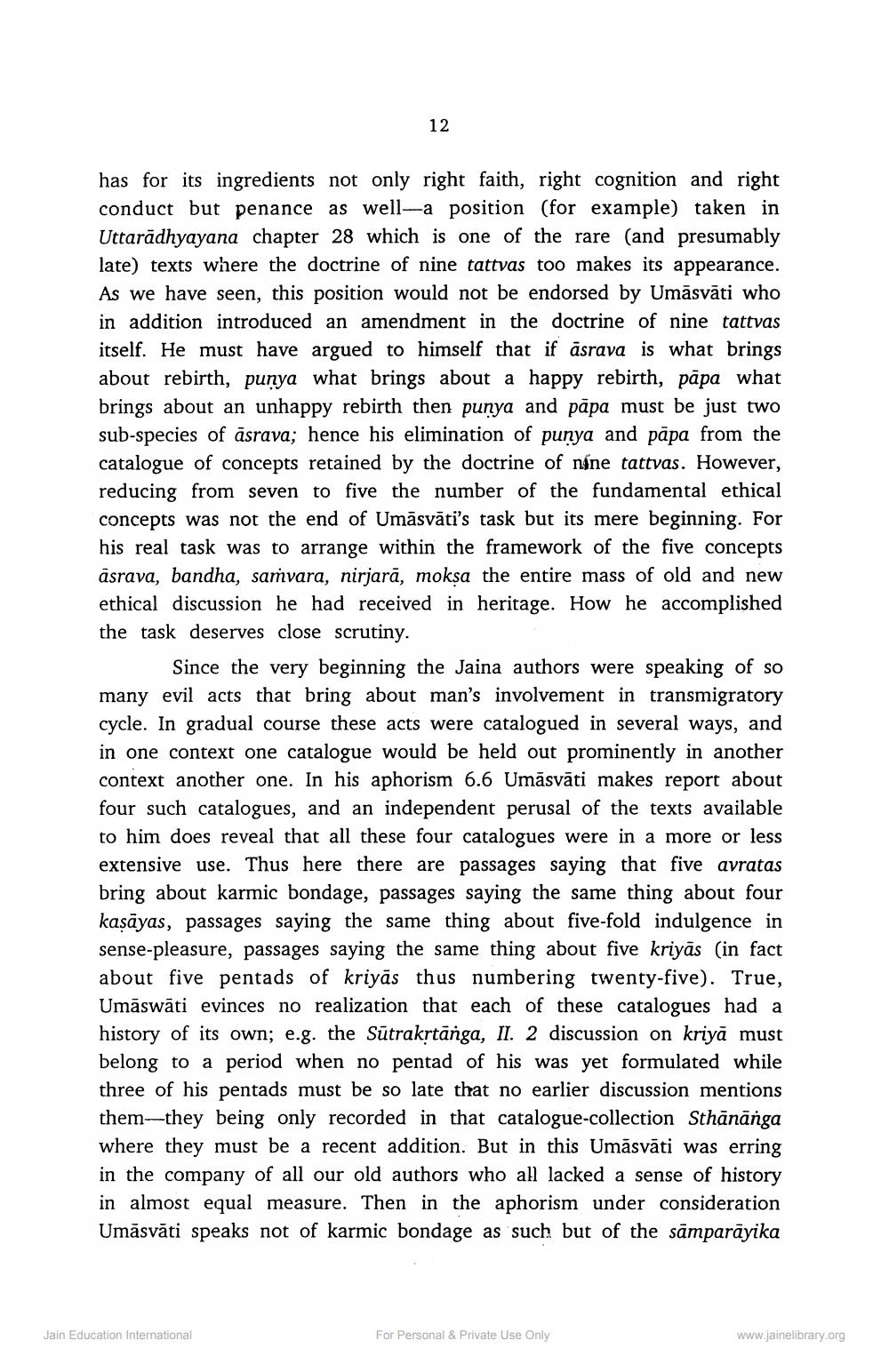________________
12
has for its ingredients not only right faith, right cognition and right conduct but penance as well—a position (for example) taken in Uttarādhyayana chapter 28 which is one of the rare (and presumably late) texts where the doctrine of nine tattvas too makes its appearance. As we have seen, this position would not be endorsed by Umāsvāti who in addition introduced an amendment in the doctrine of nine tattvas itself. He must have argued to himself that if ásrava is what brings about rebirth, punya what brings about a happy rebirth, pāpa what brings about an unhappy rebirth then punya and pāpa must be just two sub-species of asrava; hence his elimination of punya and pāpa from the catalogue of concepts retained by the doctrine of nine tattvas. However, reducing from seven to five the number of the fundamental ethical concepts was not the end of Umāsvāti's task but its mere beginning. For his real task was to arrange within the framework of the five concepts asrava, bandha, samvara, nirjarā, moksa the entire mass of old and new ethical discussion he had received in heritage. How he accomplished the task deserves close scrutiny.
Since the very beginning the Jaina authors were speaking of so many evil acts that bring about man's involvement in transmigratory cycle. In gradual course these acts were catalogued in several ways, and in one context one catalogue would be held out prominently in another context another one. In his aphorism 6.6 Umāsvāti makes report about four such catalogues, and an independent perusal of the texts available to him does reveal that all these four catalogues were in a more or less extensive use. Thus here there are passages saying that five avratas bring about karmic bondage, passages saying the same thing about four kasāyas, passages saying the same thing about five-fold indulgence in sense-pleasure, passages saying the same thing about five kriyās (in fact about five pentads of kriyās thus numbering twenty-five). True, Umāswāti evinces no realization that each of these catalogues had a history of its own; e.g. the Sūtrakstānga, II. 2 discussion on kriyā must belong to a period when no pentad of his was yet formulated while three of his pentads must be so late that no earlier discussion mentions them--they being only recorded in that catalogue-collection Sthānānga where they must be a recent addition. But in this Umāsvāti was erring in the company of all our old authors who all lacked a sense of history in almost equal measure. Then in the aphorism under consideration Umāsvāti speaks not of karmic bondage as such but of the sāmparāyika
Jain Education International
For Personal & Private Use Only
www.jainelibrary.org




